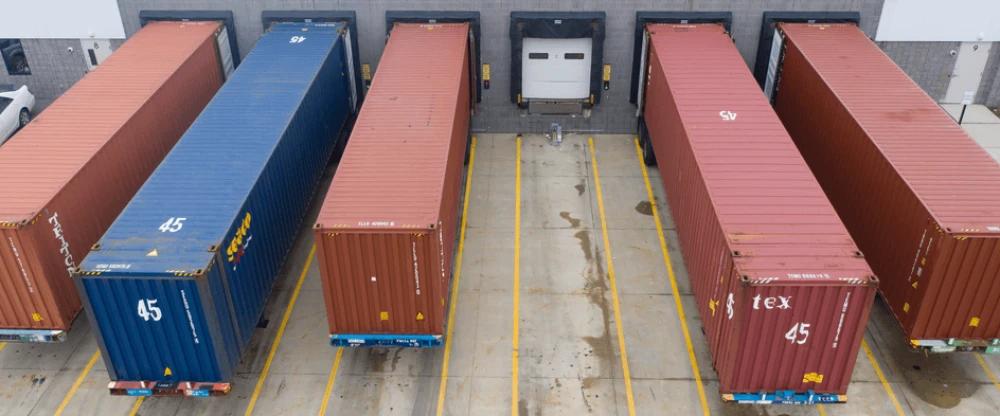You have a lot of important decisions to make when choosing how to move your products, including what aspects matter the most. How do you juggle the priorities of speed, rates, and visibility for shipments? With full-truckload freight, also known as FTL, you can optimize all three so you can take advantage of the most direct routes at competitive rates to ensure your shipments arrive on time and damage free.
What is FTL?
FTL involves filling an entire trailer with a single shipment, even if it isn’t packed to the brim. Unlike less-than-truckload (LTL) freight that combines multiple shipments from multiple companies to fill a trailer, you get the whole trailer to yourself, giving you more control over the load. FTL is often faster and more secure than LTL because there are less, and sometimes no, additional stops or pickups along the way.
There are two primary ways to book FTL. You can opt for longer-term, pre-arranged contractual agreements or turn to the spot market for one-time arrangements per load.
Contract freight establishes prices in advance and provides stability and predictability, which can be especially beneficial if capacity gets tight. The spot market can be ideal for short-term surges or irregular lanes, but it typically offers less predictability as rates are based on current market dynamics and can vary from day to day.
How can FTL help?
Whether you’re growing and needing more trailer space or looking to combine your LTL shipments into a single truckload, there are several benefits that come with FTL shipments.
Increased efficiency
FTL shipping increases efficiency in several ways. Because the entire trailer is dedicated to your freight, your products are delivered faster and with fewer stops, shaving time off the transit.
FTL pickups and deliveries utilize guaranteed appointment times, giving you more control over when your goods are picked up and delivered. You can work around your schedule so your products arrive when you need them. You’re not at the mercy of potential delays caused by loading and unloading freight along the way. As a result, you can better plan for your labor, inventory, and customer needs.
Better visibility
Full-truckload shipments offer the opportunity for improved tracking and visibility, which enables the informed decision making that is critical in today’s operating environment. Inventory issues and out-of-stocks have the potential to hurt your bottom line.
Knowing where your load is and when it will be delivered allows you to optimize your operations and provide accurate updates to end customers or others in your supply chain, improving the overall customer service experience.
Fewer touchpoints
FTL shipments are handled less than other types of loads, which reduces the risk of damage to or theft of your products. Your loads don’t have to be loaded and unloaded multiple times as they make their way to their final destination. Because your products are only loaded and unloaded once, you may also be able to use less packaging and reduce waste.
Fewer touchpoints also offer increased security for your shipment. With FTL, the trailer is dedicated solely to your freight, so there is less risk of accidental loss or theft during transit. You can lock and seal the trailer once it is loaded, making it easy to see if anything was tampered with en route.
Shorter delivery times and fewer days on the road also cut down on the amount of time your freight is at risk. Shipments that are faster, less prone to damage, and more secure mean the products are more likely to arrive on time and in good condition.
More competitive rates
FTL shipping can also be a more cost-effective option for larger loads. You pay a flat rate, and unlike LTL shipping rates that the National Motor Freight Traffic Association regulates, you can negotiate truckload costs. With full truckload, you don’t have to weigh and measure each pallet as you do with LTL, which can further increase efficiency.
LTL and even parcel carriers often add accessorial charges for everything from reweigh fees to appointment pickup or delivery fees, which can add up quickly and may surprise you. Ultimately, the overall cost per pound for full truckload freight is typically lower than other shipping options.
Can you benefit from full-truckload moves?
FTL can help you streamline shipments, improve planning, reduce risk, and cut costs while improving service. With full-truckload services, you don’t have to pick and choose what to prioritize, which is a good thing when it comes to your freight.
If you’re interested in partnering with Amazon Freight to move your loads safely and smoothly, get started by creating an account.




